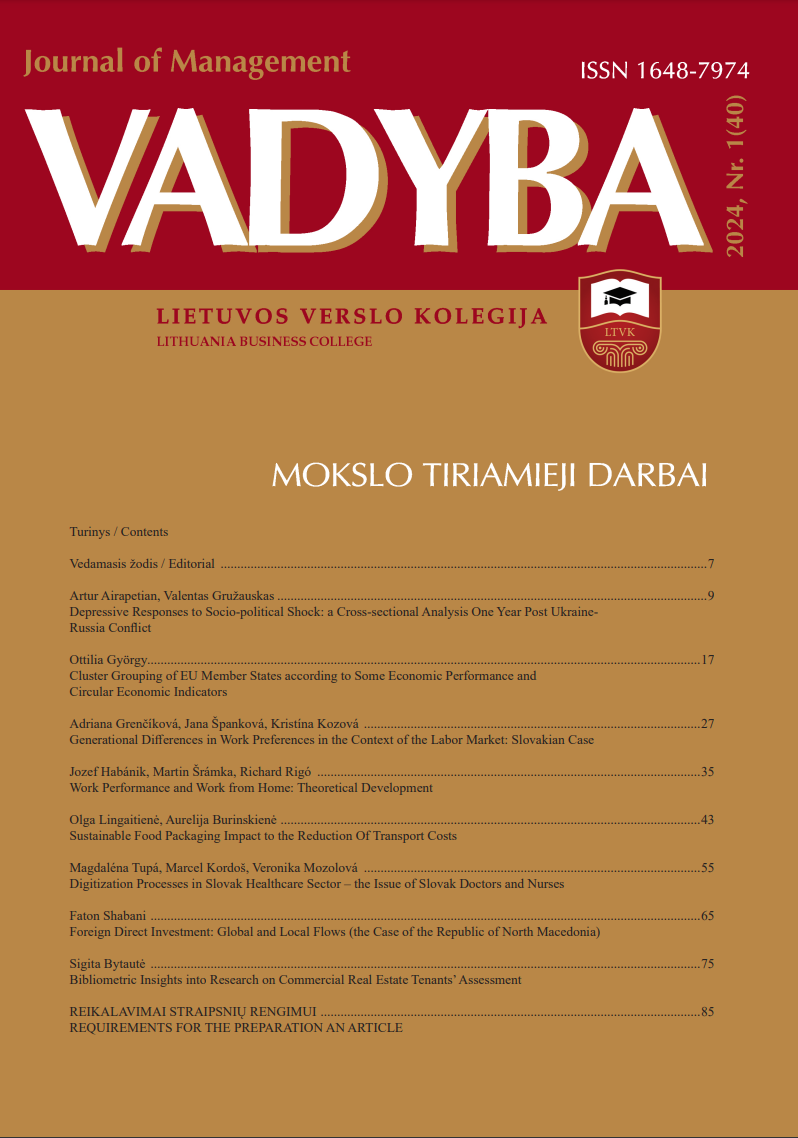FOREIGN DIRECT INVESTMENT: GLOBAL AND LOCAL FLOWS (THE CASE OF THE REPUBLIC OF NORTH MACEDONIA)
FOREIGN DIRECT INVESTMENT: GLOBAL AND LOCAL FLOWS (THE CASE OF THE REPUBLIC OF NORTH MACEDONIA)
Author(s): Faton SHABANISubject(s): National Economy, Financial Markets, Public Finances, Socio-Economic Research
Published by: Lietuvos verslo kolegija
Keywords: foreign direct investment; financial; capital; input; market; economies;
Summary/Abstract: Foreign direct investment (FDI) is the notion that can be summarized in the form in which it represents the process in which an enterprise from one country invests capital in an existing enterprise or in a new enterprise established in another country. The standard definition of foreign direct investment is given by the Organization for Economic Cooperation and Development (OECD), according to which FDI is defined as the establishment of a lasting interest in and significant degree of influence over the operations of an enterprise in one economy by an investor in another economy. FDI has proven to have an expressed importance mainly in allowing the transfer of technology – especially in the form of new types of capital inputs – that cannot be achieved or at least in the form and volume required through financial investment or trade in goods and services. FDI has already proven that it can boost competition in the domestic input market, but also motivates the employment of domestic labor. In recent decades, the global map of inflow and outflow FDI has changed considerably. Traditionally, FDI originated from developed economies, which have recently gained significant ground in the share of FDI flows between geopolitically aligned economies. In particular during financial crises there is substantial evidence that FDI can lead many developing countries to consider it as an inflow of selected private capital and in certain cases even as a single capital inflow. Such a thing finds support in the tendency of economists who insist on the free flow of capital across national borders because it enables capital to have more favorable preconditions for return at the highest rate. However, the tradition has recently been changing, making the largest sector for FDI projects to be closely related to software and IT services. Investors see rising commodity prices, increased geopolitical unrest and political instability, as well as high inflation in an emerging market as the most likely risks at this time. The official data provided by World Bank (WB), International Monetary Fund (IMF), OECD, as well as the local National Bank and State Statistical Office are unanimous that in the last 20 years, North Macedonia has maintained a continuous increase in FDI, but unfortunately, at a comparative level with the countries of the region, it continues to lags behind. The North Macedonian authorities are progressing towards the Precautionary and Liquidity Line (PLL) objectives, including preserving public finances, reducing energy subsidies, tackling high inflation and ensuring financial stability, which will also increase the possibility real for FDI inflows.
Journal: VADYBA
- Issue Year: 40/2024
- Issue No: 1
- Page Range: 65-73
- Page Count: 10
- Language: English

